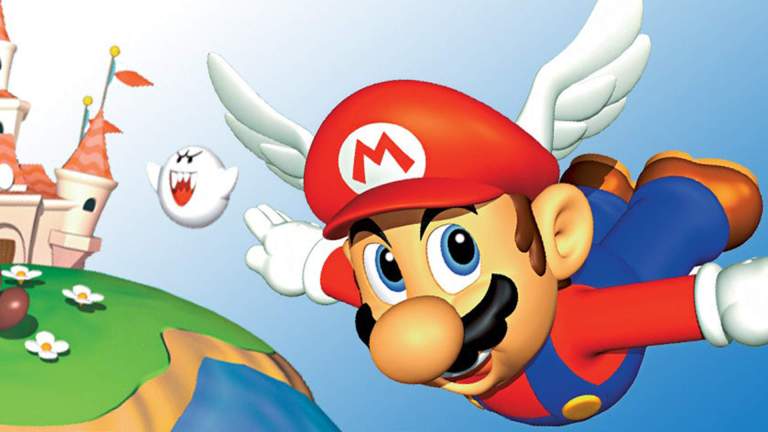Super Mario 64 Is the Most Expensive Game Ever Sold and Nobody Is Sure Why
Super Mario 64's record-breaking auction price has many wondering if nostalgia is really that powerful or if there's something more malicious at play.

If you’ve been hearing the name Super Mario 64 more than you’re used to lately, it’s either because of this brilliant blindfolded speedrun of the game that happened over the weekend or because someone just bought a copy of the N64 classic for $1.56 million dollars.
In case you’re wondering, that is indeed the most anyone has ever spent on a video game (at least we hope it is). Interestingly, the previous record for the most expensive video game ever belonged to an $870,000 copy of The Legend of Zelda that was sold just two days earlier as part of the same auction event. Everyone was surprised to see that already impressive record broken in a handful of hours (at the same auction, no less) including Heritage’s own video game specialist, Valarie McLeckie.
“After the record-breaking sale of the first game in the Zelda series on Friday, the possibility of surpassing $1 million on a single video game seemed like a goal that would need to wait for another auction,” said McLeckie. “We were shocked to see that it turned out to be in the same one.”
Industry insiders and those who enthusiastically follow the high-value retro video game market are just as shocked that Super Mario 64 ended up being the game that broke the $1 million price barrier. In fact, some of them are unsure exactly why this game of all games is the one to set this previously unthinkable record.
To be very clear, we obviously aren’t talking about just another copy of Super Mario 64. No, we’re talking about a sealed copy of the game that received a truly remarkable 9.8 A++ grade from respected retro video game grading service, Wata Games. Wata Games CEO Deniz Kahn even said that this is likely the most pristine copy of Super Mario 64 in existence. That also means that it’s the most pristine copy of one of the most popular, influential, and beloved games ever made. Needless to say, that makes it quite valuable.
Even still, the exact amount of this winning bid is raising some eyebrows. As Kotaku notes, a 9.4 A++ graded copy of Super Mario 64 sold for “only” $28,000 at this same auction. While the difference between those grades is certainly substantial in the world of high-end video game collecting, even hardcore graders and collectors are having a hard time explaining the shocking difference between those two price points.
So what is the explanation? Well, some are already wondering if this whole thing is actually part of a money-laundering operation. That theory may be little more than pure speculation at this time, but it certainly wouldn’t be unheard of for auctions and high-value collector’s items to be unwilling parts of money laundering schemes.
However, the most likely explanation in this instance may also be the simplest: a few whale investors who really want to own the rarest copy of Super Mario 64 decided to drive up the price because they clearly have way too much money.
See, while this is a rare copy of Super Mario 64, it’s worth noting that Super Mario 64 is not inherently a rare game. It is, in fact, the best-selling N64 game ever by a pretty respectable margin. It was even included in quite a few N64 console bundles sold during that system’s run. A lot of people owned Super Mario 64, and a lot of people fondly remember their time with the game just as they now recognize its historical significance.
That does seem to be the point here. While you can’t rule out the possibility that there’s something malicious at play (even if it’s just market inflation), it’s highly likely that Super Mario 64‘s popularity drove up its price in a market where you may suspect that inherently rare games would be more valuable. As we’ve seen with the rise in Pokémon TCG sales, though, pristine copies of incredibly popular pop culture items can sometimes fetch way more on the open market than obscure items that most people don’t have any nostalgia for.
So while it’s easy enough to buy into the theory that nostalgia and extreme wealth inequality are the main contributing factors here (at least for now), it’s going to be interesting to see if other games come close to breaking this record anytime in the near future.
